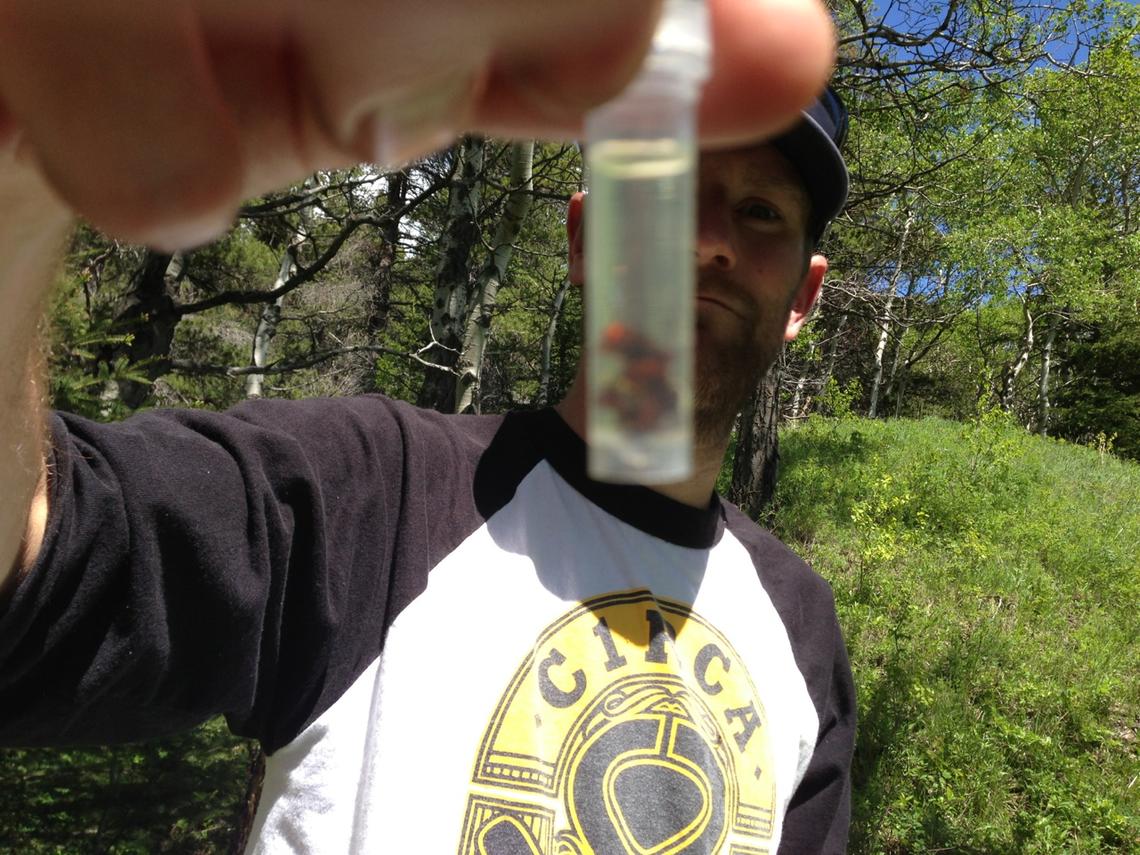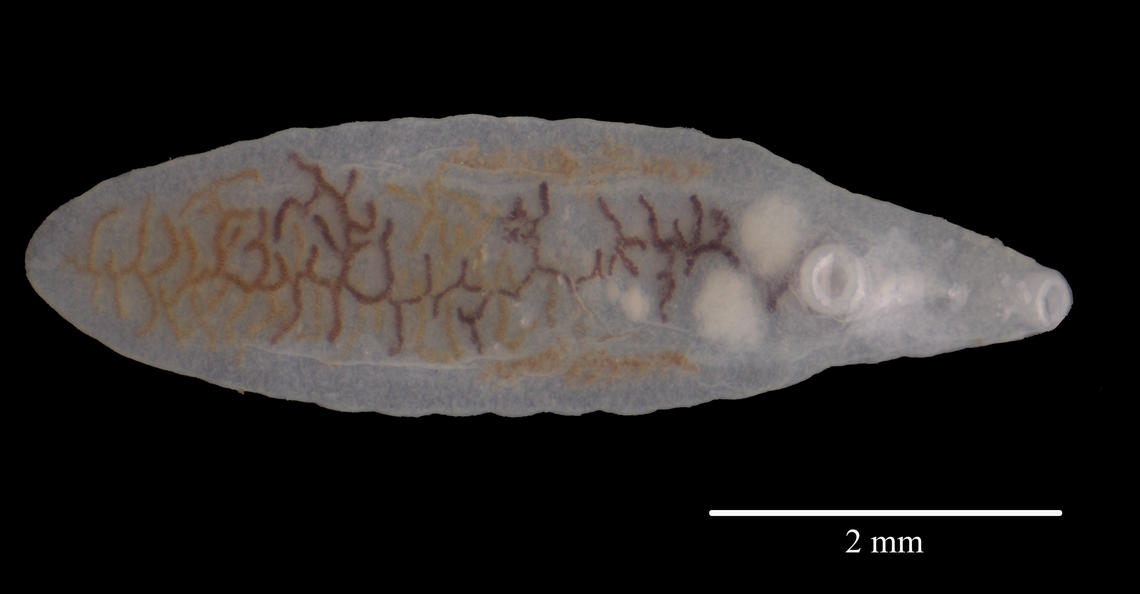March 2, 2020
Ingenious parasitic worm takes over brains of ‘zombie ants’ to ensure species survives

It could be the plot of a B-horror movie: microscopic parasitic worms invade the brains of ants, and use mind control to make the “zombies ants” do their bidding.
Sounds a little over the top, perhaps, but it is, in fact, the true-life story of the ingenious parasitic flatworm, Dicrocoelium dendriticum, which is found in increasing numbers in livestock and wildlife in the Cypress Hills region of Alberta and Saskatchewan. Exactly how this parasite has evolved to manipulate the ant to ensure it is eaten by a grazing animal has been a head scratcher for researchers.
Parasites have complex life cycles, living inside various host animals at different stages. Dicrocoelium’s life cycle is particularly complicated. It starts life as a microscopic egg in the dung of a grazing mammal such as a cow or deer before infecting and multiplying in snails and being released in tiny slime balls. Ants love to eat these slime balls but when they do, they become infected with myriads of minuscule Dicrocoelium parasites that pass into the ant’s abdomen. However, just one parasite leaves the group and migrates to the ant’s brain, essentially turning the insect into a zombie it can control. This single “brain parasite” then commands the insect to climb to the tops of flowers so that a grazing animal will eat the ant along with the throng of other parasites hiding inside the ant’s body.
Once inside, these peculiar parasites close the life cycle loop by migrating to the animal’s liver, where they mature and reproduce, with their eggs being eventually pooped out in the grass to wait for another hungry snail to eat them.
- Ant image above: Andy Hurly

Brad van Paridon collects samples in the field for the parasite study.
Faculty of Veterinary Medicine
Research offers insights into parasite’s creative survival strategy
“The evolution of the zombie ant phenomenon has been a mystery for some time since the parasite that migrates to the ant brain develops in a way that means it can no longer infect the mammalian host,” says Dr. John Gilleard, PhD, parasitology professor at the University of Calgary Faculty of Veterinary Medicine. “Consequently, it’s behaving in an apparently altruistic manner by sacrificing itself for the benefit of other parasites.”
A new study that helps explain how this remarkable parasite’s life cycle evolved has just has been published in the Proceedings of the National Academy of Sciences.
The study, co-authored by Gilleard, his graduate student Dr. Brad van Paridon, PhD, along with co-supervisor Dr. Cam Goater (University of Lethbridge) and collaborator Dr. Charles Criscione (Texas A&M University), provides rare genetic evidence to support the theory of “kin selection,” which suggests altruistic behaviour can evolve by improving the chances of survival and reproduction of genetically-related family members.

Adult Dicrocoelium dendriticum worm that lives in the bile ducts of cattle, sheep, elk, and deer.
Paul Gajda
Self-sacrificing brain worm takes one for the team
This sort of altruistic behaviour is common in nature, from sentinel monkeys providing alarm calls, to honey bee colonies where worker bees forage for their queen. But the explanation for how animals evolve to sacrifice themselves for others is a subject of much debate.
“Our research shows that, unlike similar parasites, there is a very close genetic relationship between the parasite in the brain and those in the abdomen. In fact, they are often perfect clones. This means that by sacrificing itself, the ‘brain worm’ facilitates the survival and reproduction of close relatives ensuring the passing of its genes to the next generation,” Gilleard explains.
These new insights into how the zombie ant parasites evolved their eccentric survival strategy are the result of a collaboration across disciplines and universities. “This is a great example of a multidisciplinary project bringing together parasitology, molecular genetics, ecology, and evolutionary biology expertise from three Institutions,” says Gilleard.
Brad van Paridon was a graduate student in the Host-Parasites Interactions Group, of which his supervisors Gilleard and Goater are faculty members. The HPI program has as its mission, using parasitology as a platform to prepare the next generation of scientific leaders equipped to address national and global issues of relevance to human, animal, environmental, and economic health.





